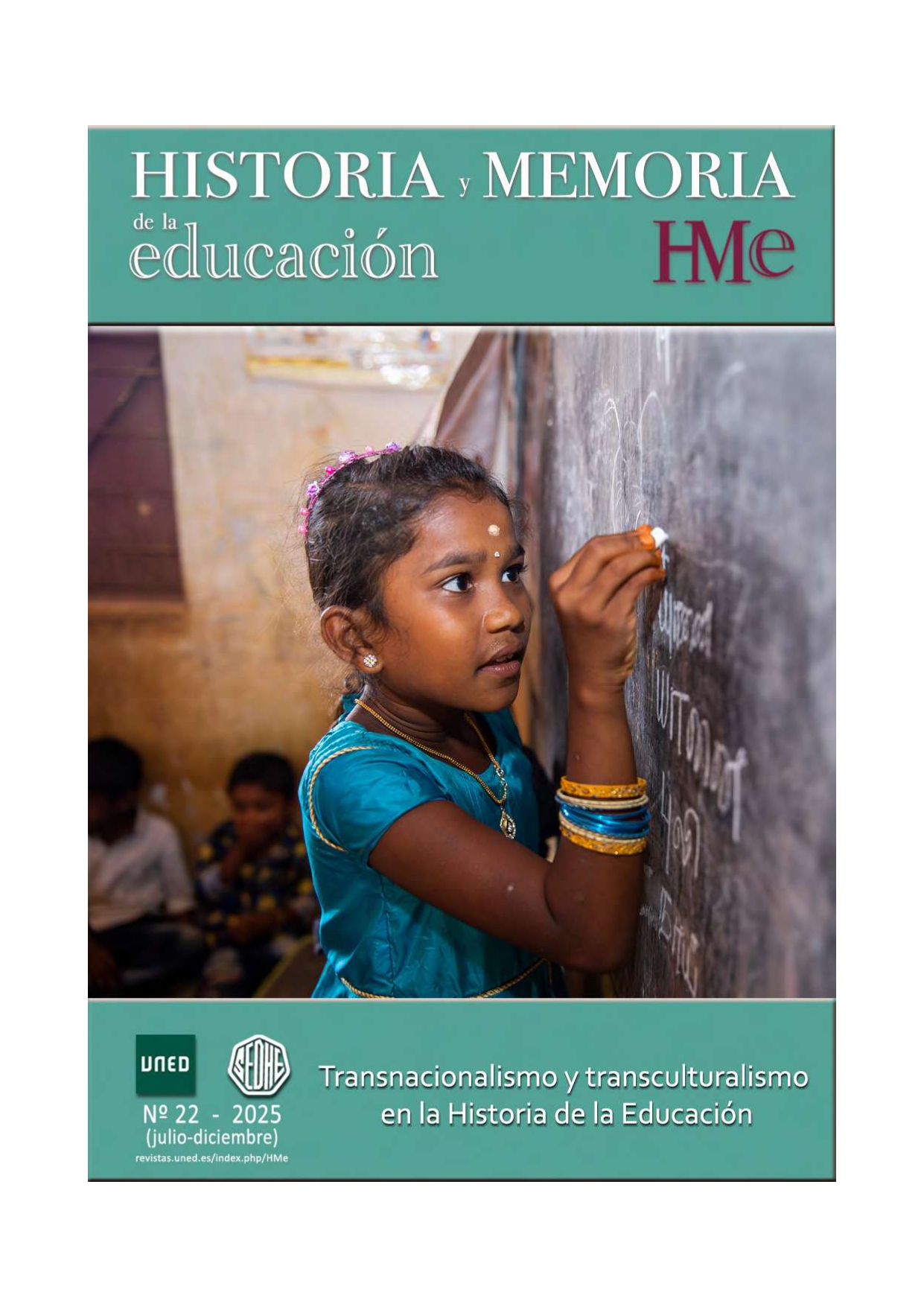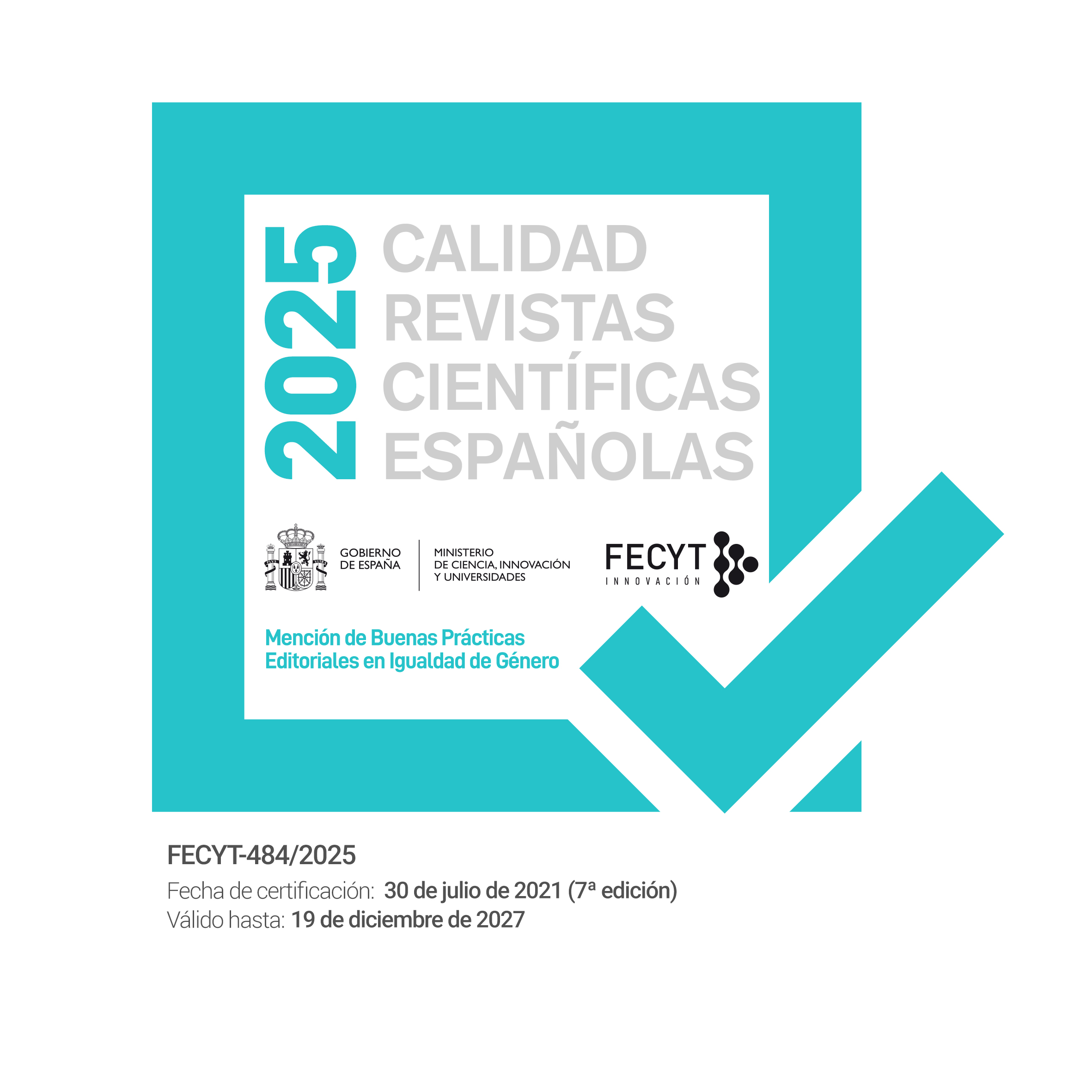Parallels Between Spain and Germany in the Repression of Primary School Teachers, 1930-1940
DOI:
https://doi.org/10.5944/hme.22.2025.43114Keywords:
Primary school teachers; Repression; Purge; Berlin; Madrid; Transnationality.Abstract
The repression exerted on primary school teachers between 1930 and 1940, in the context of the rise of fascism in Europe, represented an educational event of transnational significance. Since the 1990s, historiographical studies in both Spain and Germany have sought to reconstruct the memory of the teaching profession and brought to light the silences imposed by Francoism and Nazism. From the perspective of the History of Education, it has been revealed how the hegemonic narrative regarding the repressive and purging processes served the political agendas of both regimes. In both Madrid (1939-1975) and Berlin (1933-1945), teachers underwent an ideological purge aimed at politically and socially controlling this group of civil servants. This was done by removing from service those teachers who were Jewish, «non-Aryan», political dissidents, as well as Freemasons, «anti-religious», or «anti-patriotic» individuals. In our research, we examined the lustration implemented in both regions, seeking to identify parallels in their approaches and effects from a comparative approach. For this purpose, the historical-educational method was used, based on the analysis of primary sources, such as service sheets, administrative reports and depuration files. In addition, these documents were triangulated with official bulletins and other historical sources. Regarding the object of study, the research provided results not only in quantitative and qualitative terms but also contributed to orienting the present towards a critical pedagogy. By uncovering the similarities and differences in the repression of teachers in Madrid and Berlin, a deeper and more comprehensive understanding of school memory in the European context and in a transnational key was fostered.
Downloads
References
Acuña Rodríguez, Olga Y. «El pasado: historia o memoria». Historia y Memoria 9 (2014): 57-81.
Agulló Díaz, Carmen, y Juan M. Fernández Soria. «La depuración franquista del magisterio primario». Historia de la Educación: Revista Interuniversitaria 16 (1997): 315-350.
Assmann, Aleida. Das neue Unbehagen an der Erinnerungskultur. Eine Intervention. Múnich: C. H. Beck, 2013.
Bárcena Orbe, Fernando. «Entre generaciones. Notas sobre la educación en la filiación del tiempo». En Entre generaciones. Exploraciones sobre educación, cultura e instituciones, editado por Myriam Southwell, 15-48. Rosario: Homo Sapiens-Flacso, 2012.
Bergemann, Hans, y Simone Ladwig-Winter. Der Prozess der Gleichschaltung der Lehrerverbände sowie die Diskriminierung und Verfolgung Berliner Lehrkräfte im Nationalsozialismus. Berlín: GEW Berlín, 2016.
Del Pozo Andrés, María del M. Urbanismo y Educación. Política educativa y expansión escolar en Madrid (1900-1931). Alcalá de Henares: Universidad de Alcalá, 1999.
Del Pozo Andrés, María del M. «La cultura escolar en el franquismo: Entre la tradición y el cambio». En La educación en Castilla-La Mancha en el siglo XX, editado por María del M. del Pozo Andrés, 249-280. Ciudad Real: Almud, 2006.
Del Pozo Andrés, María del M. Comunidades familiares de educación: Un modelo de renovación pedagógica en la guerra civil. Barcelona: Octaedro, 2008.
Del Pozo Andrés, María del M. Madrid, ciudad educadora, 1898-1938: Memoria de la escuela pública. Ensayos en torno a una exposición. Madrid: Ayuntamiento de Madrid/Oficina de Derechos Humanos y Memoria, 2019.
Fernández Soria, Juan M., y Carmen Agulló Díaz. Maestros valencianos bajo el franquismo: la depuración del magisterio (1939-1944). Valencia: Institut Alfons el Magnànim, 1999.
Grana Gil, Isabel, y Francisco Martín Zúñiga. La depuración franquista del profesorado de instituto en Madrid». Revista Complutense de Educación 28, no. 3 (2017): 705-720.
Keim, Wolfgang. Erziehung unter der Nazi-Diktatur: Antidemokratische Potentiale, Machtantritt und Machtdurchsetzung. Darmstadt: Wissenschaftliche Buchgesellschaft, 1995.
Link, Jürgen-W. «Erziehung zum Führervolk – Zur Volksschule im Nationalsozialismus». Historia Scholastica 1 (2015): 17-30.
Löwenstein, Kurt. «Die Lehren des Neuköllner Schulstreiks». En Schulreform – Kontinuitäten und Brüche. Das Versuchsfeld Berlin-Neukölln, editado por Gerd Radde, 252-254. Opladen: Leske & Budrich, 1993.
Lorent, Hans P. Täterprofile: die Verantwortlichen im Hamburger Bildungswesen unterm Hakenkreuz. Hamburgo: Landeszentrale für politische Bildung Hamburg, 2016.
Lorent, Hans P. Max Träger: Biografie des ersten Vorsitzenden der Gewerkschaft Erziehung und Wissenschaft (1887-1960). Weinheim: Beltz Juventa, 2017.
Martínez Martínez, Miguel Á. «La depuración franquista del magisterio en las escuelas primarias de Carabanchel». Cabás 14 (2015): 16-37.
Menguiano Rodríguez, Carlos «Renovación pedagógica e identidad: Un estudio comparativo de los expedientes de oposición y de depuración de las direcciones escolares de la Segunda República». Historia y Memoria de la Educación 12 (2020): 209-238.
Müller, Saskia. Der Nationalsozialistische Lehrerbund: Verbrechen, Ideologie und Pädagogik im NS-System. Weinheim: Beltz Juventa, 2021.
Müller, Saskia, y Benjamin Ortmeyer. Die ideologische Ausrichtung der Lehrkräfte 1933-1945: Herrenmenschentum, Rassismus und Judenfeindschaft des Nationalsozialistischen Lehrerbundes. Eine dokumentarische Analyse des Zentralorgans des NSLB. Weinheim: Beltz Juventa, 2017.
Nora, Pierre. Les Lieux de Mémoire. Montevideo: Ediciones Trilce, 2008.
Oberbürgermeister der Reichshauptstadt Berlin. Verwaltungsbericht der Hauptschulverwaltung der Stadt Berlin und der Allgemeinen Hauptverwaltung Kunst und Bildungswesen für die Zeit vom 1. April 1932 bis 31. März 1936. Berlín, 1937.
Ortmeyer, Benjamin. Schulzeit unterm Hitlerbild: Analysen, Berichte, Dokumente. Fráncfort del Meno: Brandes & Apsel, 2000.
Ramos Zamora, Sara. «Protagonistas de una desmemoria impuesta: los maestros y sus relatos de vida». En Museos pedagógicos. La memoria recuperada, editado por Víctor Juan Borroy, 19-53. Zaragoza: Museo Pedagógico de Aragón, 2008.
Ramos Zamora, Sara. «Un ejercicio de intervención de la memoria: La represión de las maestras de la Segunda República». En Las maestras de la República, editado por Elena Sánchez de Madariaga, 147-165. Madrid: Catarata, 2012.
Ramos Zamora, Sara. «Debates sobre la Memoria y la Historia de la Educación en el siglo XXI». Social and Education History 10, no. 1 (2021): 22-46.
Ramos Zamora, Sara y Andra Santiesteban. «Depuración y exilio interior de las maestras de primera Enseñanza en el Madrid de posguerra». Historia y Memoria de la Educación 17 (2023): 173-204.
Ramos Zamora, Sara y Francisco J. Pericacho Gómez. «Una propuesta de innovación docente para enseñar historia de la renovación pedagógica en la universidad». Educació i Història: Revista d’Història de l’Educació, no. 26 (2015): 65-88.
Ruiz Berrio, Julio. «Metodología docente de la historia de la Educación». Revista de Ciencias de la Educación 157 (1994): 71-94.
Ruiz Berrio, Julio. «El método histórico en la investigación histórica de la educación». Revista Española de Pedagogía 34, no. 134 (1976): 449-475.
Schleper, Frank, Frauke Gewecke, Helga Schneider, Ignacio Olmos y Nikky Keilholz-Rühle. Kultur des Erinnerns: Vergangenheitsbewältigung in Spanien und Deutschland (Fráncfort del Meno: Vervuert, 2009).
Stern, Kathrin. Erziehung zur Volksgemeinschaft. Volksschullehrkräfte im Dritten Reich. Paderborn: Ferdinand Schöningh, 2021.
Tiana Ferrer, Alejando. La investigación histórico-educativa actual. Enfoques y métodos. Madrid: UNED, 1988.
Downloads
Published
How to Cite
Issue
Section
License
Copyright (c) 2025 Historia y Memoria de la Educación

This work is licensed under a Creative Commons Attribution-NonCommercial 4.0 International License.
Authors who publish in Historia y Memoria de la Educación agree to the following terms:
- Authors retain copyright and grant the journal right of first publication with the work simultaneously licensed under a Creative Commons Attribution-NonCommercial 4.0 International that allows others to share the work with an acknowledgement of the work's authorship and initial publication in this journal.
- Authors are able to enter into separate, additional contractual arrangements for the non-exclusive distribution of the journal's published version of the work (e.g., post it to an institutional repository or publish it in a book), with an acknowledgement of its initial publication in this journal.
- Authors are permitted and encouraged to post their work online (e.g., in institutional repositories or on their website) prior to and during the submission process, as it can lead to productive exchanges, as well as earlier and greater citation of published work (See The Effect of Open Access).












